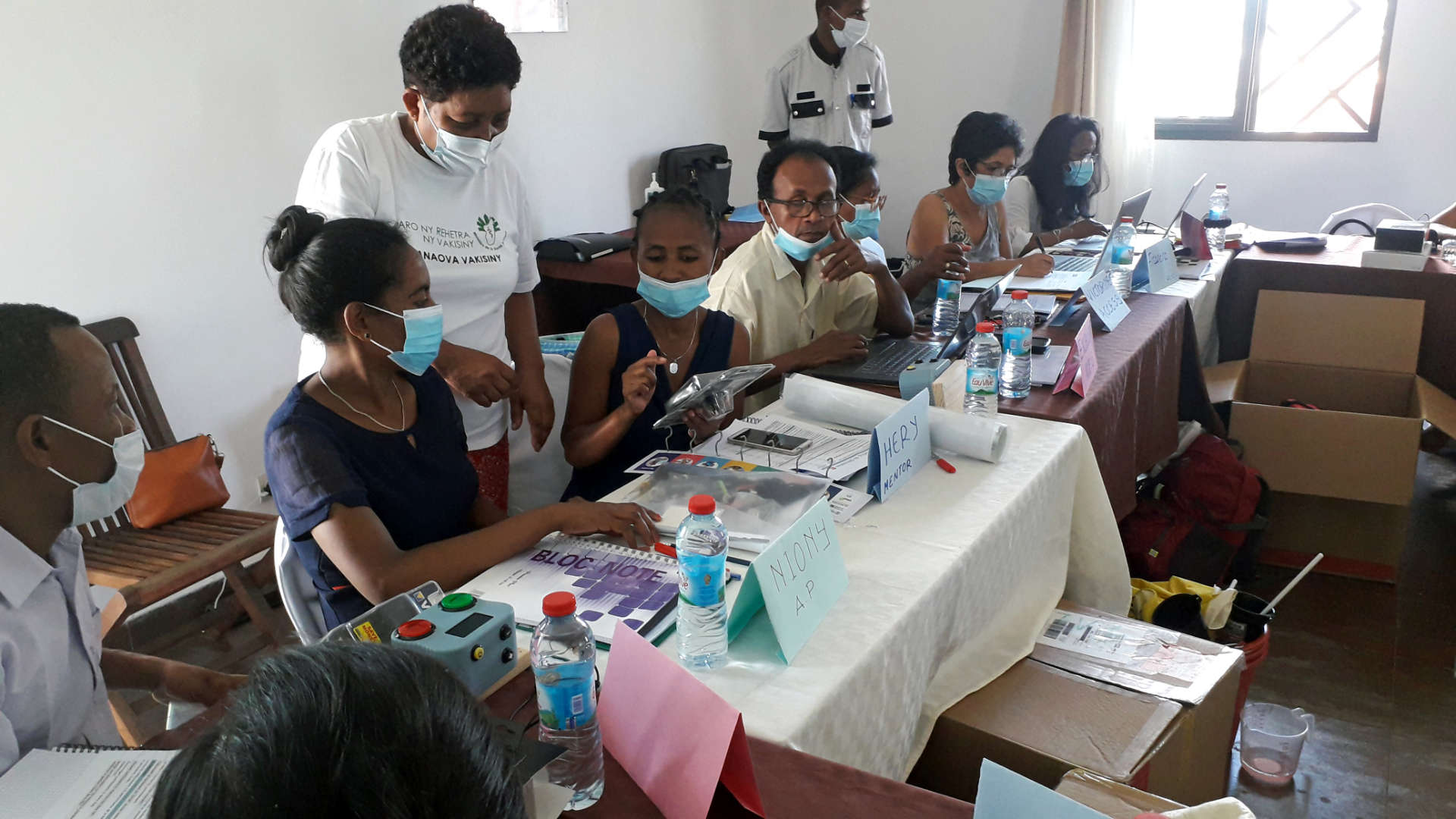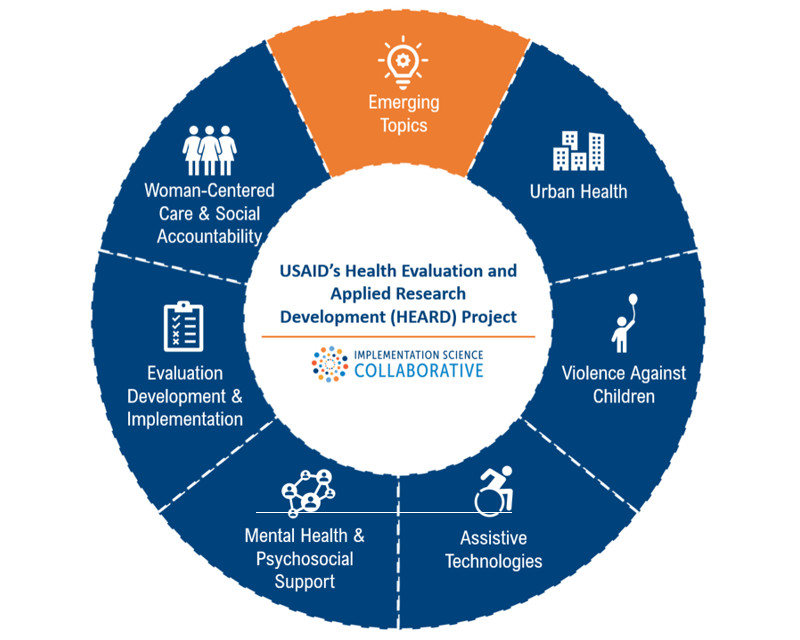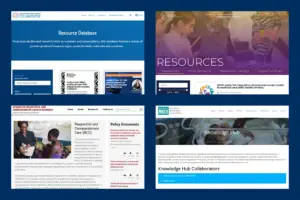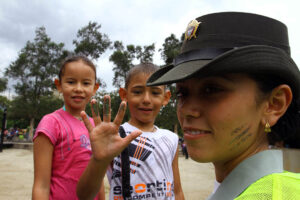
Implementation Science
HEARD partners support implementation research on mentorship approaches to address post-partum hemorrhage care in Madagascar. Photo credit: Agence Multimedia & Publicitaire Manakara
Implementation Science
Better use of evidence is key to improving implementation and more rapid – and sustained – achievement of our development goals. Unfortunately, a disconnect often exists between implementation challenges and relevant and timely information to inform solutions.
URC’s implementation science (IS) goal is to improve health outcomes through application of evidence to inform policies and practices. This includes facilitating the strategic stakeholder engagement required to identify the most pressing questions, strengthen existing data, generate new research, and support evidence uptake throughout the process.
URC has more than 30 years of experience as thought leaders and implementers of global research and evaluation projects with a commitment to making evidence actionable in global health contexts.
We have demonstrated success in the complex business of building, nurturing, harnessing, and engaging IS partnerships to take up processes that achieve results. URC prioritizes our commitment to evidence uptake across diverse technical areas and within a range of global and country-specific implementation contexts.

We aim to make existing data and evidence more available and useful to decision-makers. This requires fostering multi-stakeholder partnerships, inclusive of implementers, policymakers, advocates, researchers and others, to identify and fill the most relevant and important evidence gaps. URC works through partners to navigate strategic alignment of priorities among evidence producers and evidence users. If there is engagement and demand among the evidence users from the start, use of this knowledge to inform action is more likely.
Depending on the implementation questions at hand, we leverage a wide set of research and evaluation approaches and disciplines. This includes implementation research designs, operations research methods, quality improvement, policy analysis, case study development, process documentation, evidence reviews, and data liberation and strengthening.
Underpinning URC’s success is strategic communications, knowledge management and dissemination strategies that connect and inform the constellation of stakeholders required to collectively translate evidence into action.
Health Evaluation and Applied Research Development (HEARD) Project: Led by URC, HEARD is a flexible global implementation science partnership mechanism that responds to USAID’s priorities. Under this flexible global IS partnership mechanism, URC and more than 50 partners have worked in 17 countries across five regions in service of 11 USAID offices and six missions in response to USAID’s priorities. URC leverages learning collaborations – in which a diverse range of stakeholders share learning related to a specific health or development area, jointly generate evidence, and accelerate the use of that evidence to improve policy and program implementation globally.

Human Resources for Health (HRH2030) Project: URC served as a sub-partner to Chemonics International on HRH2030, a global project that worked to enhance health workforce performance and productivity through improved health facility management, health worker retention, digital health technology, and quality improvement. URC contributed its technical leadership in health systems strengthening by developing health workforce skills and competencies, continuously improving the quality of care, motivating health workers and managing their performance, and applying an implementation science approach to its learning agenda. We leveraged our relationships with country and global networks – including the Global Health Workforce Alliance – to strengthen HRH at the national and local level.
Translating Research into Action (TRAction) Project: Led by URC, TRAction solicited proposals – primarily on a competitive basis – and awarded health research grants to research organizations in Africa and Asia to evaluate ways to effectively and efficiently introduce, implement, and scale up evidence-based interventions for maternal, newborn, and child health.


